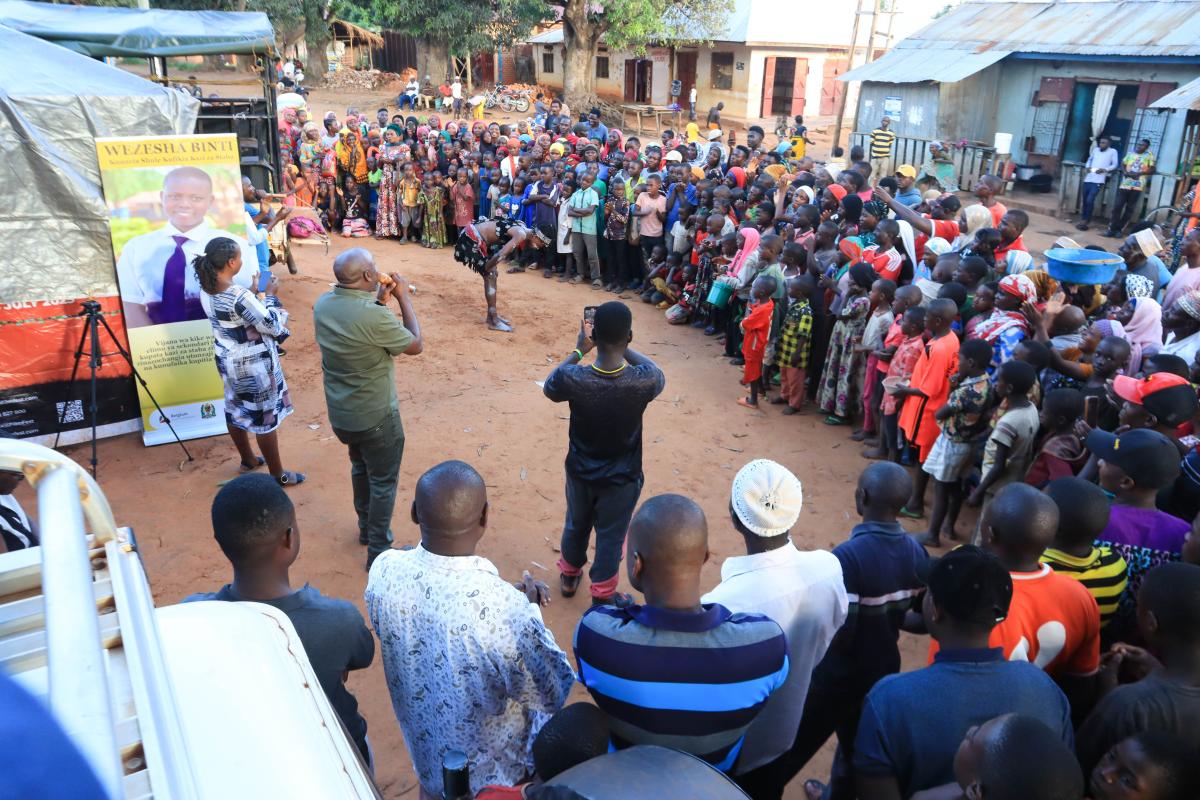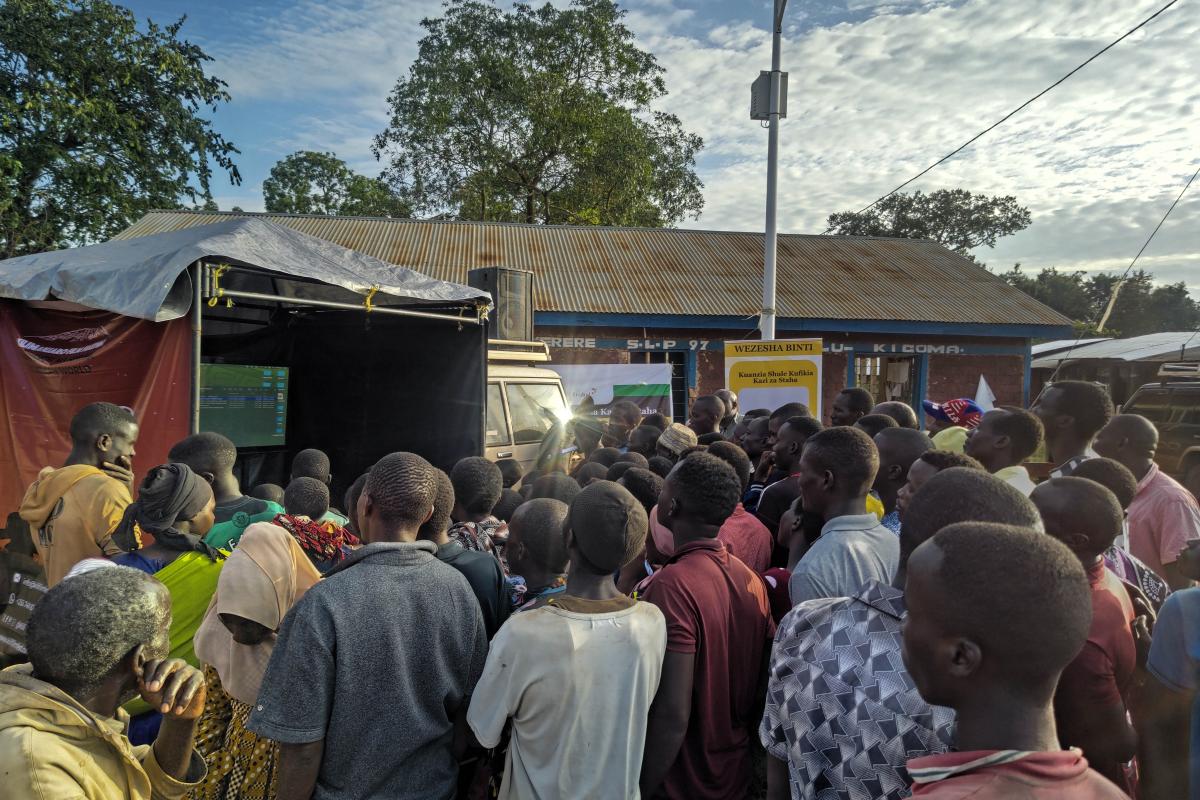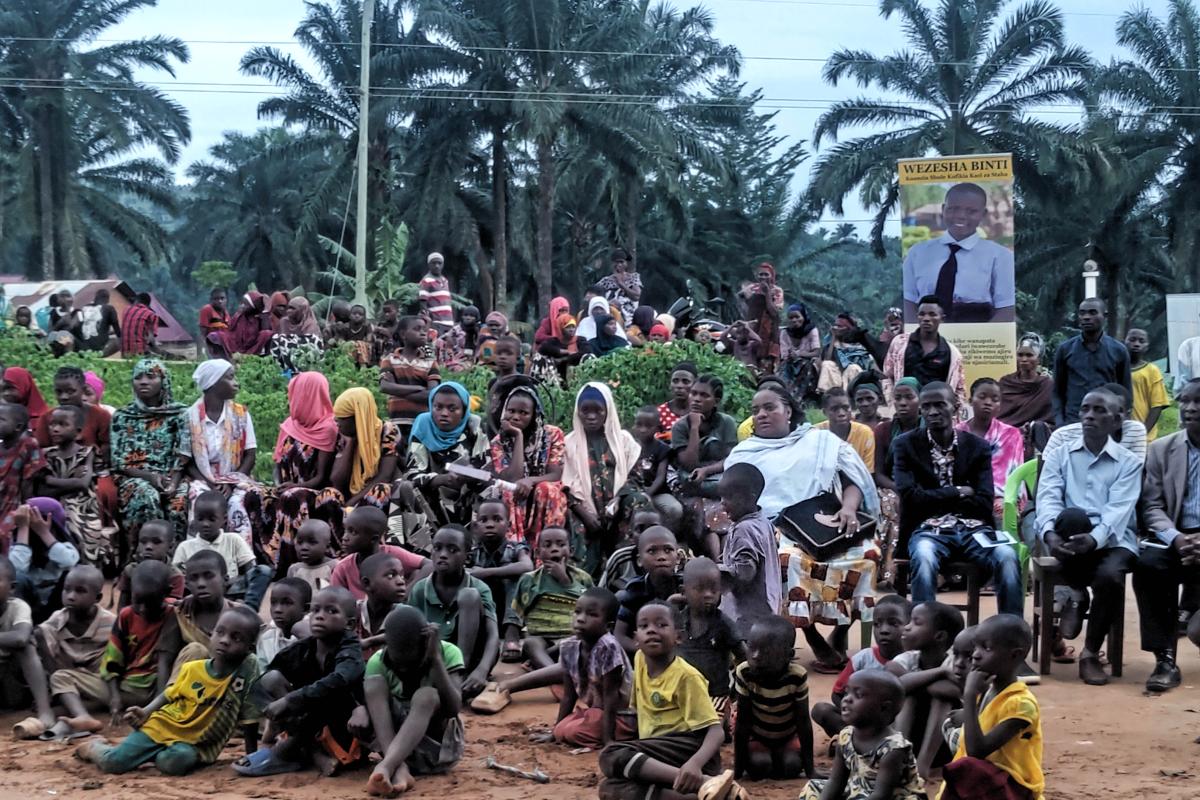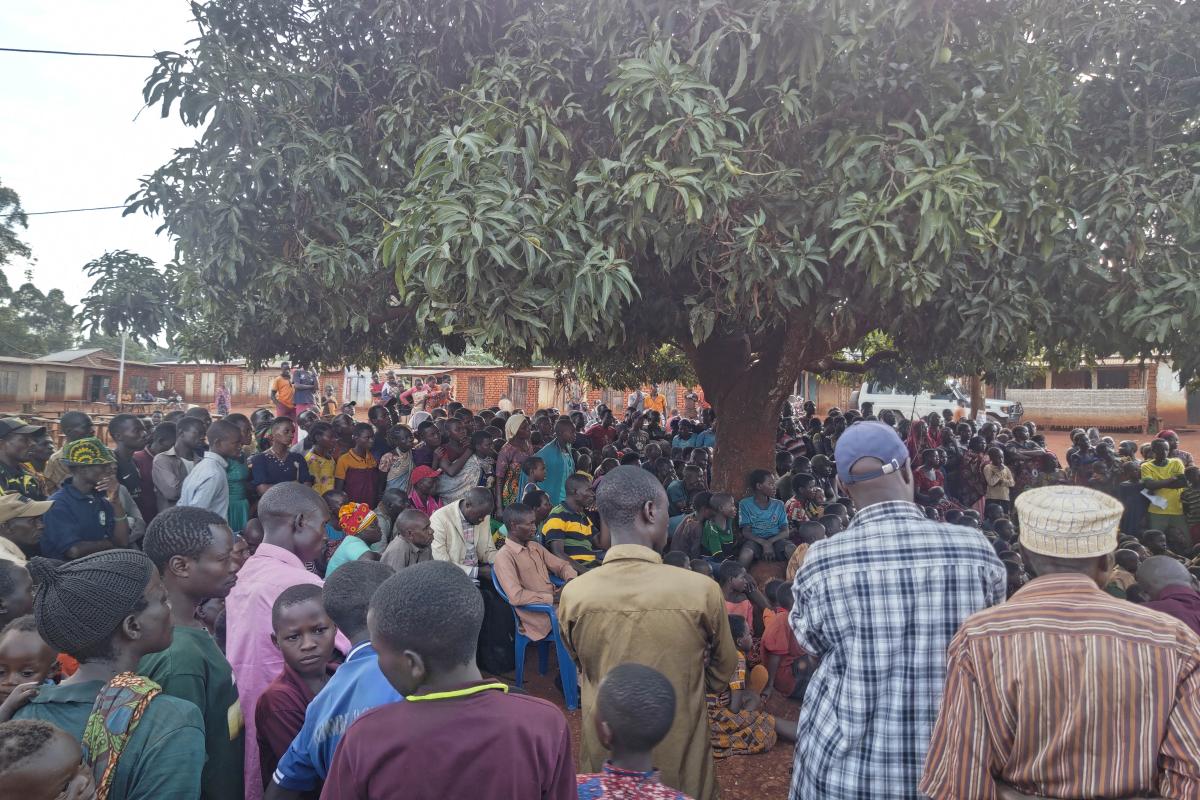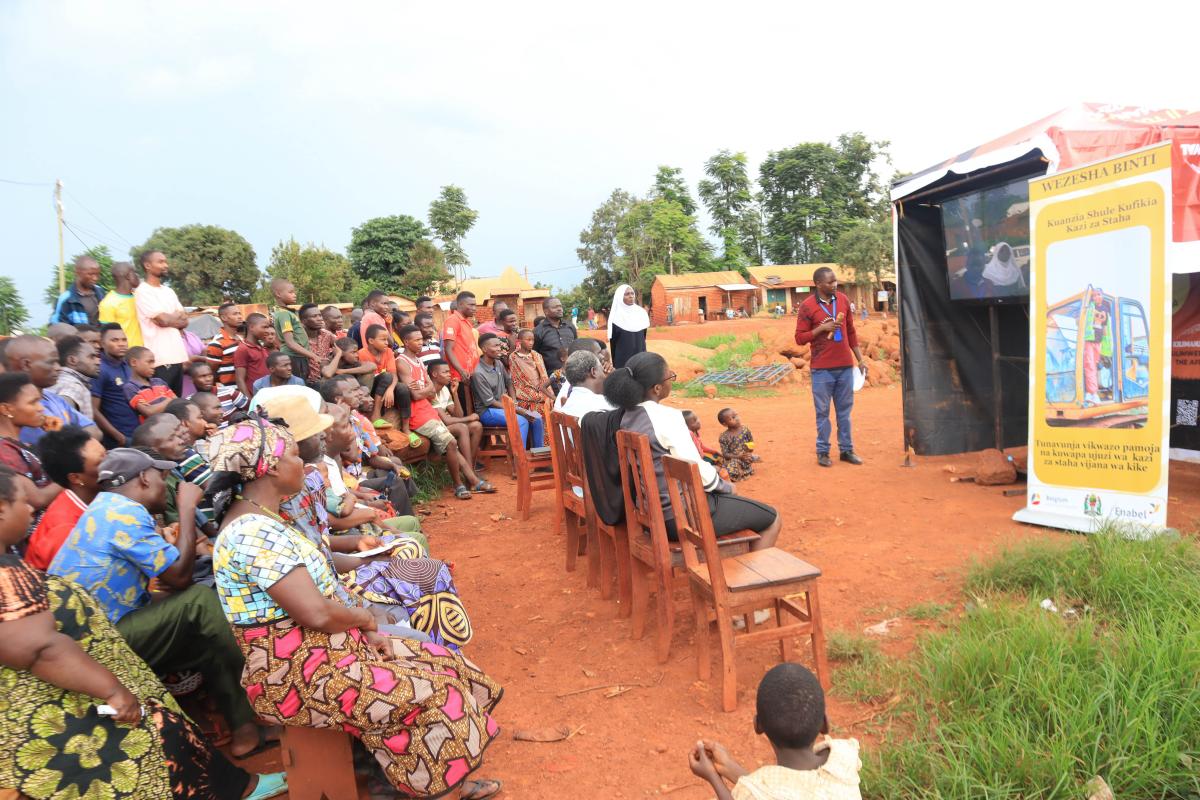Wezesha Binti Project Drives Transformative Change in Kigoma Through Community Empowerment
The Wezesha Binti Project, a
groundbreaking bilateral initiative led by the Belgium Development Agency (Enabel)
in partnership with the Tanzanian Government, has sparked a wave of
community-driven action in the Kigoma region. By addressing the systemic
barriers faced by young women and youth, the project has ignited a collective
effort to promote gender equality, improve access to education, and create
sustainable economic opportunities. Through a series of inclusive community
dialogues and impactful video screenings across 25 wards in five districts, the
initiative has not only raised awareness but also inspired tangible solutions
to long-standing challenges.
A Platform for Open Dialogue
and Collective Action
From December 2 to December 17,
2024, the Wezesha Binti team, supported by Jamii-Lab consultants, brought
together local leaders, parents, students, educators, and community members to
tackle critical issues such as menstrual hygiene management (MHM), violence
against women and girls (VAWG), youth unemployment, and sexual and reproductive
health rights (SRHR).
The innovative approach of
combining facilitated discussions with thematic video screenings created a safe
and inclusive space for participants to confront deeply entrenched societal
norms. "The dialogues allowed communities to move beyond simply
identifying problems to actively proposing solutions," shared a
Jamii-Lab facilitator. "It was inspiring to see people commit to
actionable steps that could transform lives."
Uncovering Challenges,
Proposing Solutions
The dialogues highlighted several
pressing issues that continue to impede the progress of young women and youth
in Kigoma:
- Menstrual Hygiene Challenges
- Issue: Many schools lack adequate MHM facilities, forcing girls to miss school during their menstrual cycles.
- Solutions: Build gender-sensitive toilets, distribute reusable sanitary pads, and integrate menstrual health education into school curricula.
- Violence Against Women and Girls (VAWG)
- Issue: Cultural stigma and fear of reprisal prevent survivors from reporting gender-based violence.
- Solutions: Establish GBV support desks in schools and community centers, train law enforcement to handle cases sensitively, and launch awareness campaigns to challenge harmful norms.
- Youth Unemployment and Skills Gaps
- Issue: Limited access to vocational training and mentorship programs restricts economic opportunities, particularly for young women.
- Solutions: Expand vocational training in emerging sectors like green jobs, create mentorship networks, and provide seed funding for youth-led entrepreneurship initiatives.
- Long Commutes to Schools
- Issue: Many students, especially girls, drop out due to the dangers and exhaustion of traveling long distances to school.
- Solutions: Construct hostels near schools and improve affordable, safe transportation options for students.
A Community Ready for Change
The dialogues revealed a strong desire among community members to break free from cultural barriers and embrace progress. Local leaders played a pivotal role in mobilizing participants, while young people actively contributed ideas for shaping their futures. However, participants emphasized the need for sustained support and resources to ensure the proposed solutions are implemented effectively.
A Call to Action for Sustainable Impact
As the Wezesha Binti Project moves into its next phase, stakeholders are calling for continued collaboration between government agencies, NGOs, and local communities. "This initiative has laid a strong foundation, but lasting change requires ongoing investment in education, gender-sensitive policies, and economic empowerment programs," emphasized a regional education officer.
The project's next steps will focus on implementing the district-specific action plans, strengthening partnerships with vocational institutions, and securing funding for infrastructural improvements.
With the momentum generated by these community dialogues, Wezesha Binti is set to be a catalyst for positive change in Kigoma, fostering a future where young women and youth can thrive in a more equitable and supportive society.
Latest news from this project
No news
